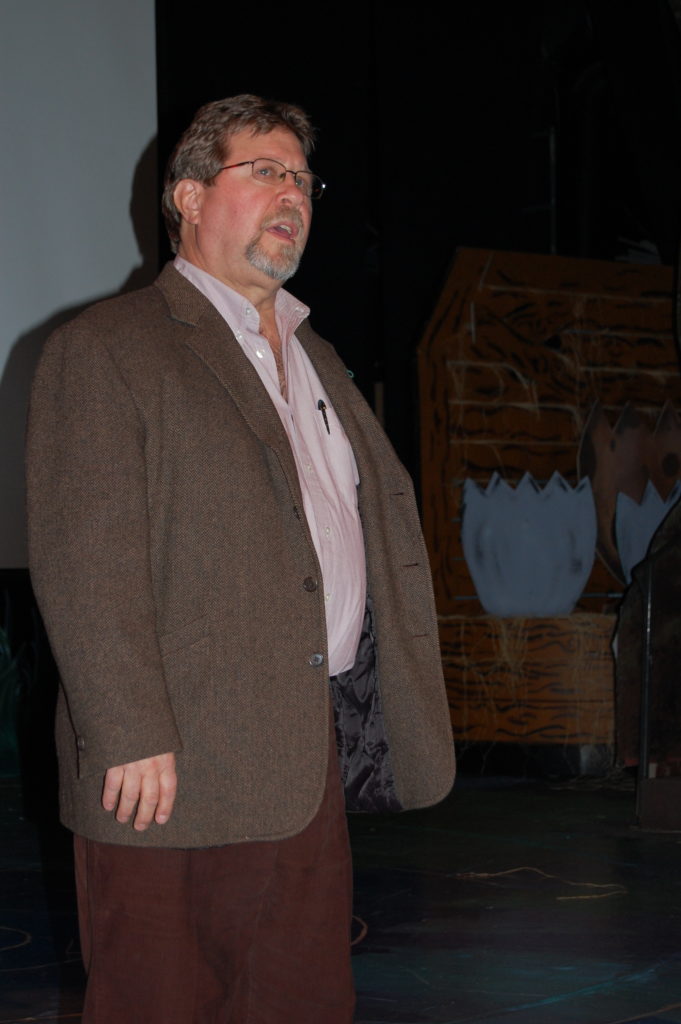 A nationally-respected folklorist, writer, photographer, and musician, Dr. Robert (Roby) Cogswell served as Tennessee’s State Folklorist for thirty years. During his tenure, Cogswell built a robust legacy while documenting, presenting, and preserving the state’s most significant folk traditions. Over the course of his career, he became a leading advocate for public folklore policies that insisted on integrity and sensitivity in presenting traditional culture. Cogswell was praised especially for his advocacy on behalf of the ethical treatment of folk artists. When he retired in 2014, he was one of the longest-serving and most influential state folklorists in the United States. That same year, he received the Benjamin A. Botkin Prize from the American Folklore Society, the highest honor for lifetime achievement in public folklore.
A nationally-respected folklorist, writer, photographer, and musician, Dr. Robert (Roby) Cogswell served as Tennessee’s State Folklorist for thirty years. During his tenure, Cogswell built a robust legacy while documenting, presenting, and preserving the state’s most significant folk traditions. Over the course of his career, he became a leading advocate for public folklore policies that insisted on integrity and sensitivity in presenting traditional culture. Cogswell was praised especially for his advocacy on behalf of the ethical treatment of folk artists. When he retired in 2014, he was one of the longest-serving and most influential state folklorists in the United States. That same year, he received the Benjamin A. Botkin Prize from the American Folklore Society, the highest honor for lifetime achievement in public folklore.
Cogswell was tireless during his three-decade tenure, with projects running the gamut from music, to craft, to dance, to folk games, and much more. His efforts helped establish a reputation for Tennessee traditions and tradition bearers that stretched nationwide. In 1986, Cogswell organized and led the Tennessee programs at the Smithsonian Festival of American Folklife in Washington D.C. and at the National Folk Festival in Chattanooga. In 1988, in partnership with the Southern Federation for the Arts, he co-produced the Cumberland Music Tour, a concert series that traveled from Alabama to Vermont and featured some of the most deeply-rooted traditional musicians from the Cumberland Plateau region. In 1994, Cogswell curated Dixie Frets: Luthiers of the Southeast, an exhibit developed in partnership with the National Council for the Traditional Arts showcasing makers of fretted stringed instruments, staged at Chattanooga’s Hunter Museum of Art in conjunction with the National Folk Festival.
Other significant achievements included presenting Tennessee folklife traditions at the landmark three-day Crockett Bicentennial Celebration in 1986; at Gospel Arts Day Nashville, a pioneering African American heritage event and in 1988, and 1989; and at the monumental Tennessee Banjo Institute in 1988, 1990, and 1992. Cogswell also played a key role in forming an agency partnership with the Tennessee Overhill Heritage Association, the Eastern Band of Cherokee, and the North Carolina Arts Council in the development of the three-state Cherokee Heritage Trails initiative. During the late 1990s and early 2000s, Cogswell coordinated with the Tennessee State Museum on the largest sustained acquisition of folk-art objects in state history, with pieces including white oak baskets, a stumpjumper boat, quilts, carved peach seeds, wooden toys, Choctaw beadwork and more. During his career and post-retirement, Cogswell has been a relentless supporter and advocate for the continuing significant role of the Tennessee Folklore Society, for which he served as President from 2017-2020.
Cogswell’s publication credits include co-production of the Handbook for Tennessee Folk Artists, and authoring the acclaimed large-format book Tradition: Tennessee Lives & Legacies, which documented Tennessee’s most esteemed living traditional artists of the time. A gifted photographer, Cogswell’s images have appeared in local, regional and national publications. A native of Shelbyville, Tennessee, Cogswell received a BA at Vanderbilt and an MA and PhD in folklore at Indiana University. Upon retirement, he summed up his life’s pathway as such: “When I was a kid, every Tennessee student took sixth grade Tennessee geography and history and in some ways that was the most valuable schooling I ever had in my life. Tennessee is an amazing state, 95 counties is a big turf and I’ve learned something new every week on the job. In the big picture, I like to think I’m more of a ‘professional Tennessean’ than folklorist.”

